If you think about high-end fashion, Louis Vuitton is often one of the top brands that come to mind.
This luxury brand has been around for decades, gaining global fame and becoming one of the world’s most popular names in fashion.
But apart from being a household name and selling luxury items around the world, what else is there to know about Louis Vuitton?
Louis Vuitton is never on sale.
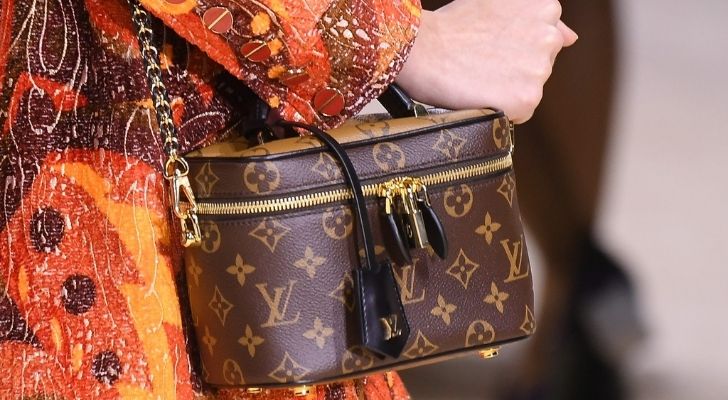
Anyone hoping to pick up a discounted bag in the next sale might be very disappointed. Louis Vuitton never has sales, choosing instead to keep products at fixed prices all year round.
You won’t find any Louis Vuitton outlet stores, and you won’t see this company selling wholesale either.
The brand warns its customers against buying heavily discounted bags online, which are often counterfeit goods.
Louis Vuitton isn’t the only company to take this approach. Other labels known for their lack of discounted sales include Apple and Chanel.
Louis Vuitton started out selling luggage trunks.
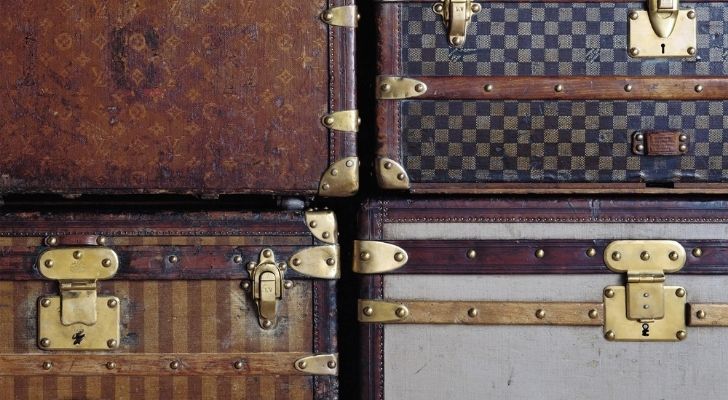
Louis Vuitton was founded in 1854 by 33-year-old Louis Vuitton. The first products he made for his new Paris-based company were luggage trunks.
When Louis Vuitton died in 1892, the business was passed to his son (and only child) Georges.
Until this point, the brand started to branch out internationally, reaching customers outside of Paris.
The range of luggage trunks continued to expand, and by the 1930s, Louis Vuitton was also manufacturing smaller bags and purses.
Three generations of Vuitton men managed it.
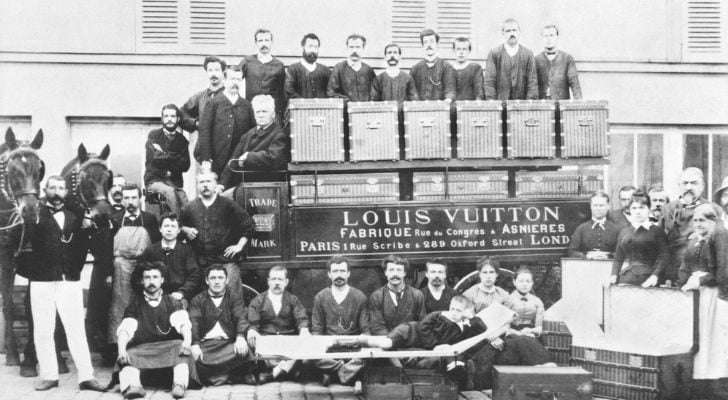
When Georges Vuitton died in 1936, his eldest son Gaston inherited the company. Gaston became the third generation of Vuitton men to manage the brand.
Under Gaston Vuitton, the company began manufacturing more smaller bags and luggage items.
Leather became the primary material in Louis Vuitton products, which the brand is well known for today.
A new shape of luggage trunk was born through Louis Vuitton.
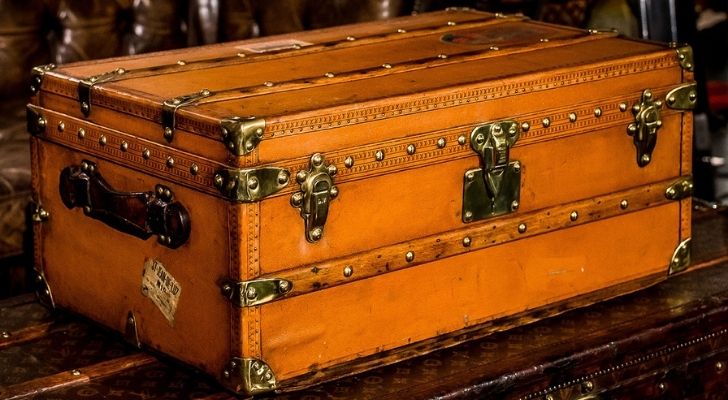
Louis Vuitton’s luggage trunks were not the traditional shape and style.
He was the first designer to create cases with square corners instead of rounded corners. This new design allowed the trunks to be stacked more easily.
With more effective storage options, customers could take their LV trunks on trains and ocean liners – transportation methods that were very new during the late 19th century.
The famous LV monogram came after Louis Vuitton’s death.

While you’d be forgiven for assuming Louis Vuitton himself created the famous LV monogram, it actually came long after he died.
His son Georges Vuitton created the overlapping “L” and “V” logo in 1896, four years after Louis’ death.
The simple floral design paid homage to Louis Vuitton and has become one of the most recognized fashion brands in the world.
The new brand also helped combat counterfeit products and made it easier for Georges to start taking the business globally.
Georges Vuitton publicly challenged Harry Houdini to escape a new safety lock.
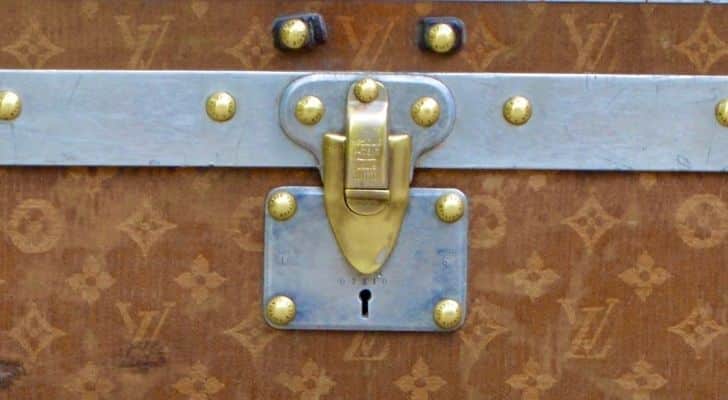
Before Louis Vuitton’s death, he and his son Georges developed a revolutionary new lock system to help keep their customers’ luggage safer.
Thieves would often look out for expensive luggage bags by wealthy individuals. The new system made it safer for the customer and more challenging for thieves to break into.
When Georges patented the system several years later, he publicly challenged illusionist and escape artist Harry Houdini to break out of a luggage trunk.
Although Houdini did not accept the challenge, it served as a confident advertisement for the new security feature.
The company had ties to the Nazi regime during the Second World War.
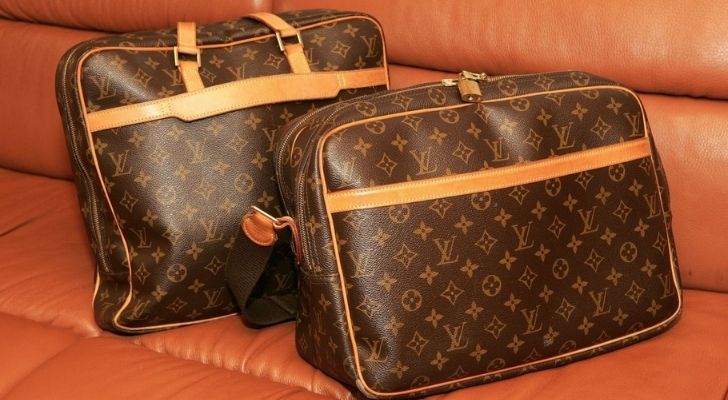
After the Nazi invasion of France in 1940, many fashion houses were ordered to close unless they worked with the regime.
Under the management of Gaston Vuitton, Louis Vuitton did not shut down and worked with the Nazi-backed government.
Henry Vuitton, the son of Gaston and great-grandson of Louis Vuitton, received awards for his support and loyalty to the Nazi regime.
Louis Vuitton bags are almost invincible.
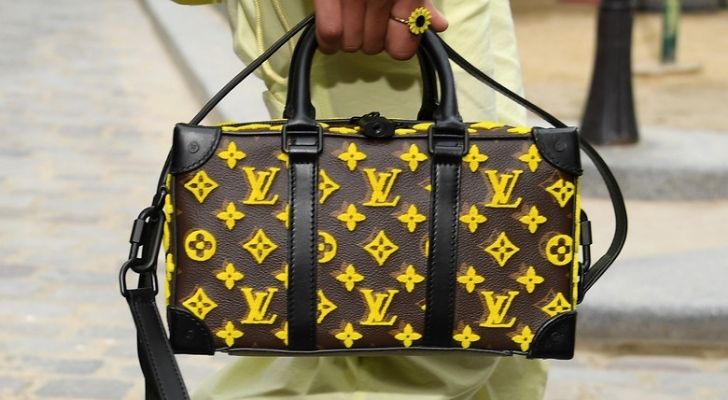
One of the reasons these luxury bags are so expensive is that they are incredibly durable and strong.
Louis Vuitton materials can withstand almost all conditions, including heavy water and even fire.
During the manufacturing process, bags are dropped repeatedly to test their durability. The zippers are opened and closed around 5,000 times.
However, despite their durable and fireproof nature, end-of-season bags are burned rather than being sold at a discount.
This helps maintain the high-end and exclusive Louis Vuitton branding.
Emma Stone and Lea Seydoux are among the famous LV faces.

Everything about Louis Vuitton is seen as exclusive, including the chance to model for the company.
High-end brands want high-profile models, so it’s no surprise that A-listers Emma Stone, Léa Seydoux, and Alicia Vikander are among the famous faces of Louis Vuitton.
As well as actresses, Louis Vuitton works with many famous models, including Lauren Case and Kristen Coffey.
Louis Vuitton worked for Napoleon III’s wife.
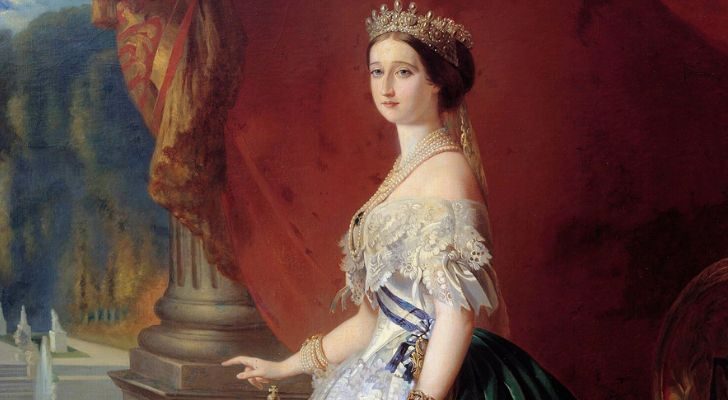
You may be wondering how Louis Vuitton managed to create such a wealthy and high-end clientele for his business.
He had a lucky break in 1852 when he was asked to work for Empress Eugénie de Montijo, the wife of Napoleon III.
Louis Vuitton was Eugénie’s box maker, an experience that enabled his creations to reach royal and wealthy individuals far and wide.
The Speedy was made famous by Audrey Hepburn.
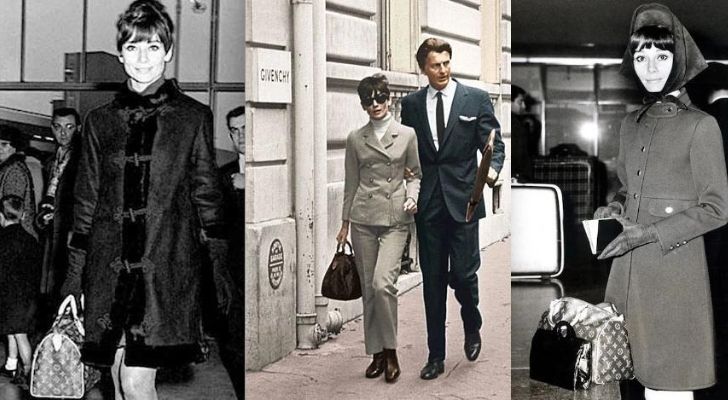
In the 1960s, actress and model Audrey Hepburn contacted Louis Vuitton, asking the company to make her a mini Speedy.
The design for “Speedy” was created in 1930 and was initially intended as a travel case.
But Audrey Hepburn’s love of her new bag made it more popular than ever; today, it is available in different sizes.
Louis Vuitton brings decades of history and has come a long way from its humble beginnings.
Now operating in dozens of countries, LV is one of the most popular brands – not just in the fashion industry but also in the entire world!


















